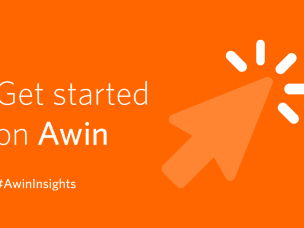Social Media & Influencer Marketing for Non-Retail Industries
Written by Sarah Ruzgar on 5 minute read
Social media and influencer marketing might be associated with ecommerce and retail brands, but these powerful tactics readily apply across all industries.

Maximizing the value of self-published content can be a challenge, particularly with limited resources, but the added value of influencers can help brands across all industries effectively reach consumers in a way that inspires genuine enthusiasm.
Kim Westwood, Founder and Managing Director of Shopping Links, a platform that connects bloggers and social influencers with brands, shares a few ways brands can use social media and influencer marketing to boost overall awareness, attract new business, and strengthen customer loyalty in any industry:
Don’t Sell Your Product. Spark a Conversation.
This might seem counter-intuitive, particularly for marketers who also oversee advertising, but you will see a greater return through social media without overtly selling. The goal of your social media campaign is to engage your audience by sparking interest with genuinely helpful content and information. The more it feels like a two-way conversation, the better response you’re likely to receive - that's how you increase your social media reach.
Start by thinking about your customers’ most common questions. What pain points does your product or service alleviate? What industry trends or recent current events are relevant to your customers? If you’re a financial services company, for example, you might create content to explain regulations or rules that affect your customers. If you’re an insurance company, you might answer common questions about the best types of insurance for different scenarios. When in doubt, stick to the three “E”s: create content that educates, enlightens and entertains.
Seek Out Influencers That Fit Your Brand.
Influencer marketing amplifies your social media efforts by delivering your message to a bigger, and often more engaged audience. But to see the full benefits, you need to make sure you’re reaching the right audience. For many industries, this means finding the most ardent users of your products, even if it means they have fewer followers.
A car insurance brand, for example, may want to reach parents of teenagers through “mom bloggers” or owners of sports cars through passionate car bloggers. A credit card brand might want to engage fashion influencers to demonstrate the card’s benefits through real-world scenarios, such as how easy it is to use while traveling or how many venues accept it. The best influencers for your brand may not directly relate to your industry, but they should be good representatives of your target customers.
Think Outside the Post.
Although we often think of social media in terms of status updates, photo sharing or blog posts, not all successful campaigns follow this formula. Gifting products or providing services to influencers is a great way to showcase your brand in action. A telecom company, for example, might offer influencers a newly released phone for a period of time to document their experience using it. A financial planner might work with an influential blogger to reach a particular goal as the influencer documents their progress.
Some of the most effective collaborations that we’ve managed for brands have focused on fostering real-life relationships with influencers. Marks and Spencer has been a leader of this strategy in the fashion industry, utilizing influencer events to strengthen brand loyalty and increase engagement among followers, but it’s a strategy that all industries can adopt. Whether you’re launching a new product or introducing a new service, influencer events can help you efficiently reach potential new customers while making valuable new connections.
Add Influencer Marketing to Affiliate Marketing.
As the first influencer marketing platform to facilitate affiliate marketing within influencer collaborations, we have long championed the combined use of these complementary strategies. By adding commission to paid or gifted collaborations, brands benefit from the reach and control over the message that an influencer marketing campaign provides, while also enjoying the direct revenue potential and tracking that comes with an affiliate marketing campaign.
These campaigns typically involve sponsored social media and blog content complemented by affiliate links, which allow followers to make an immediate purchase from a post that can be attributed to a specific influencer you’re working with. We have found that a good commission rate together with a flat fee payment for content drives the best results, but building strong influencer relationships is often equally important. If an influencer does not feel valued or inspired by your brand story, it can be a challenge to build ongoing genuine interest and engagement in your brand. The key to successful campaigns is a balance between high-quality content, good influencer relationships, and attractive commission rates.
Putting It All Together.
These are just a few of the ways that brands across all industries can use social media and influencers to expand their reach and inspire new followers to become customers. By combining influencer marketing and affiliate marketing, brands can maximize their reach, connect directly with customers, and track their results in a way that ensures the highest ROI for your goals, whether you’re looking to boost awareness, generate direct sales, or increase your search engine optimization.
As you measure ROI, It is important to look at all aspects of the return you get from Influencer Marketing, including the high-quality imagery and strengthened brand loyalty you receive. It also helps to see your results by individual influencer, as we demonstrate in our Collaboration Results Page for brands, which shows each influencer’s reach, engagement and commissioned sales by campaign.
About Shopping Links
Shopping Links is an online marketplace designed to make it easier for bloggers and brands to connect and collaborate. The company's real-time, automatically updated, digital media kit for bloggers means that brands and PR agencies are able to make more informed choices about the bloggers they wish to work with; and bloggers (or their agents) are no longer required to manually update data as it changes. What’s more, new blogger talent is emerging daily, making it difficult for brands and agencies to remain on top of ‘who’s who’ and ‘who’s new’. Shopping Links makes it easier for brands to identify and connect with new talent as soon as that talent emerges.



